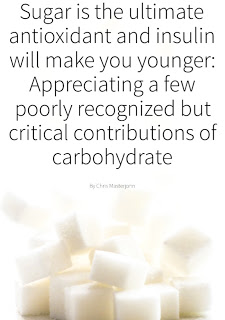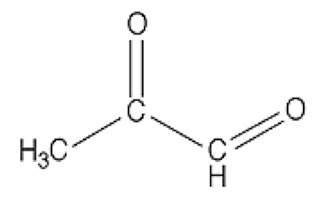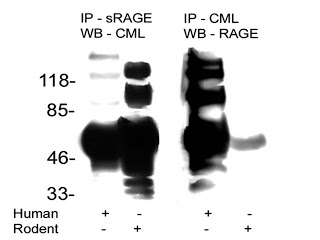If you are looking for my writings on glycation and AGEs, you should start with this article: Where Do Most AGEs Come From? O Glycation, How Thy Name Hast Deceived Me!For a more technical and comprehensive introduction, I recommend chapter 2 of my doctoral dissertation. For the importance of insulin and glucose to protect against …
Glycation and AGEs

Mastering Nutrition Episode 13: Wait a Second, Is Glycation Actually GOOD For You?
In this episode, I wrap up glycation week by discussing why glycation may play essential physiological roles in the body. In the early days of methylglyoxal research, Albert Szent-Gyorgyi, who won the 1937 Nobel prize in Physiology or Medicine for his discovery of vitamin C and critical steps in energy metabolism, saw the molecule …

Mastering Nutrition Episode 012: What Is Measuring Our Hba1c REALLY Telling Us About Our Blood Glucose and Diabetes Risk?
In response to popular demand, this week is glycation week. In this episode, I discuss the strengths and limitations of using Hba1c to measure our cumulative recent exposure to blood glucose and diabetes risk. Many people will be familiar with the fact that variation in red blood cell turnover confounds this measurement. Less well known …

Sugar is the Ultimate Antioxidant and Insulin Will Make You Younger
No, I don’t mean that ironically. A little hyperbolic? A little, but not ironic. This is my new Examine.Com Research Digest Editorial about some underappreciated benefits of glucose and insulin. The Research Digest costs money, but as a member of my audience you can read my editorial and also get a sneak peak at the …

Mastering Nutrition Episode 6: Why “Glycation” Is a Bad Reason to Restrict Carbs
In this episode, I respond to a listener’s question about whether glycation is a good argument against a high-carbohydrate diet. I agree that we should avoid refined carbs and empty calories, but in this episode I describe why “glycation” is really a misnomer and why carbohydrate is actually likely to protect against glycation. Listen on …

We Really Can Make Glucose From Fatty Acids After All! O Textbook, How Thy Biochemistry Hast Deceived Me!
Biochemistry textbooks generally tell us that we can’t turn fatty acids into glucose. For example, on page 634 of the 2006 and 2008 editions of Biochemistry by Berg, Tymoczko, and Stryer, we find the following: Animals Cannot Convert Fatty Acids to Glucose It is important to note that animals are unable to effect the net …

Where Do Most AGEs Come From? O Glycation, How Thy Name Hast Deceived Me!
I’ve written a few posts about advanced glycation endproducts (AGEs) in the past, which can be found here. These posts include a refutation of the common belief that the “receptor for AGEs” (RAGE) is actually a receptor for AGEs, and a refutation of the implausible and unreliable data suggesting that butter is a major source …
The Trouble With Measuring AGEs — Butter and More
This post is basically a technical footnote to my next post on advanced glycation endproducts (AGEs) and all subsequent posts on AGEs explaining why I will give preference to certain studies that use what I consider reliable methods for measuring these compounds. In my previous posts, “Is Butter High in AGEs?” and “Is the Receptor …

Is the “Receptor for AGEs (RAGE)” Really a Receptor for AGEs?
RAGE. It sounds pretty mad. Angry. And it’s out to get you. How? By punishing you for eating overcooked food, igniting your tissues with the hellfire of inflammation and oxidative stress. Or not. Maybe it’s just there to make your brain grow. Welcome to the controversies of science department snack rooms and rarely published critical …
Is Butter High in AGEs?
A butter-loving reader posed the following question to me: Thanks for all the work you do. Any chance you could post something on the AGE content of butter? Does it make a difference if AGEs are endogenously or exogenously produced? Thank in advance. Suffice it to say he liked my answer. I’ll repeat it here, …
